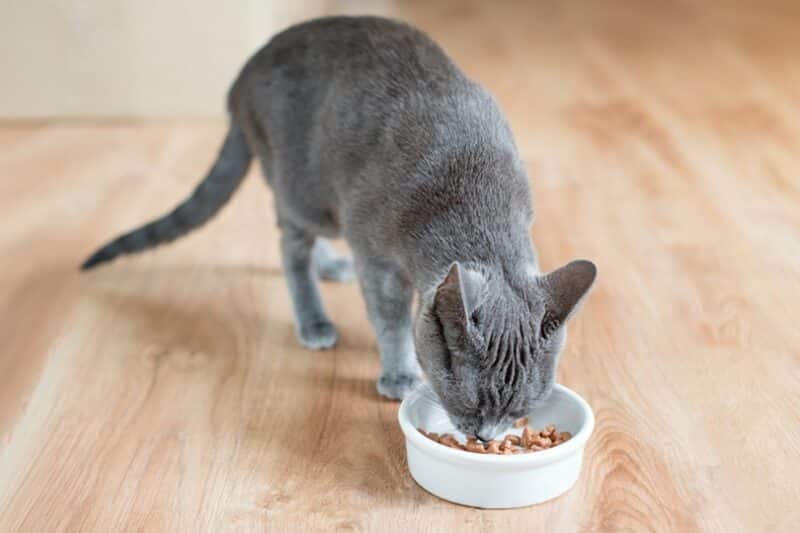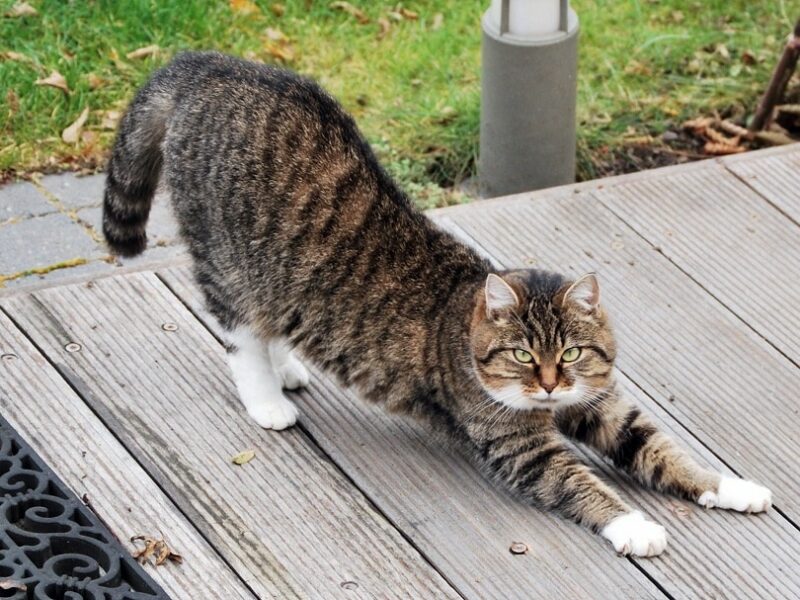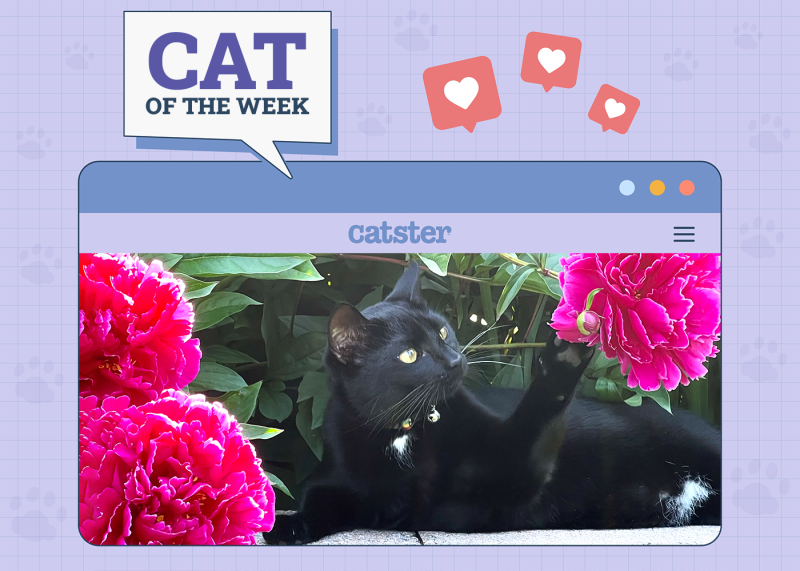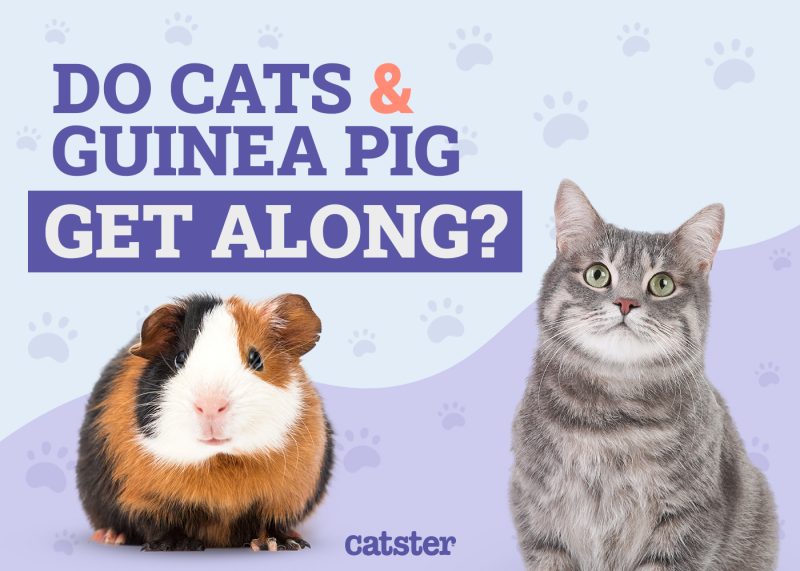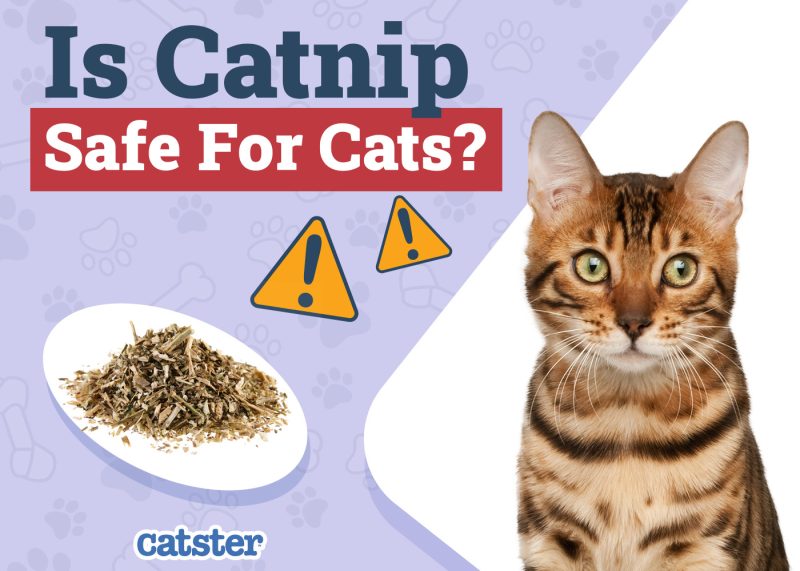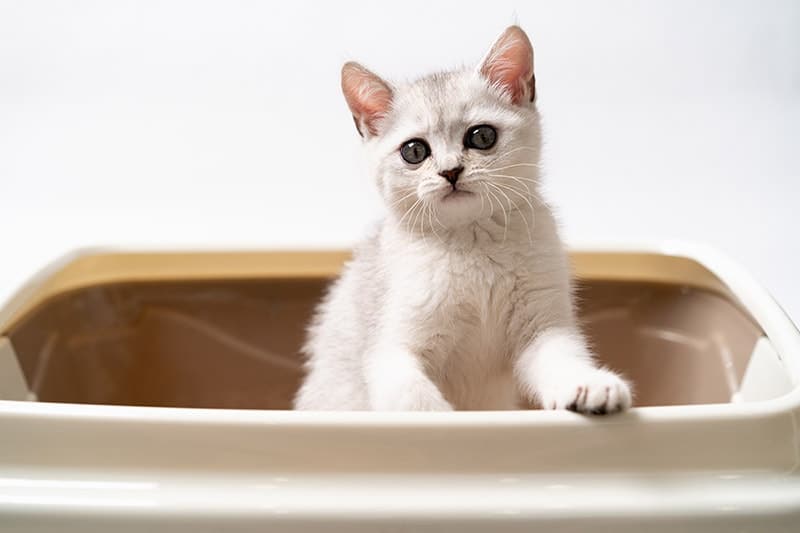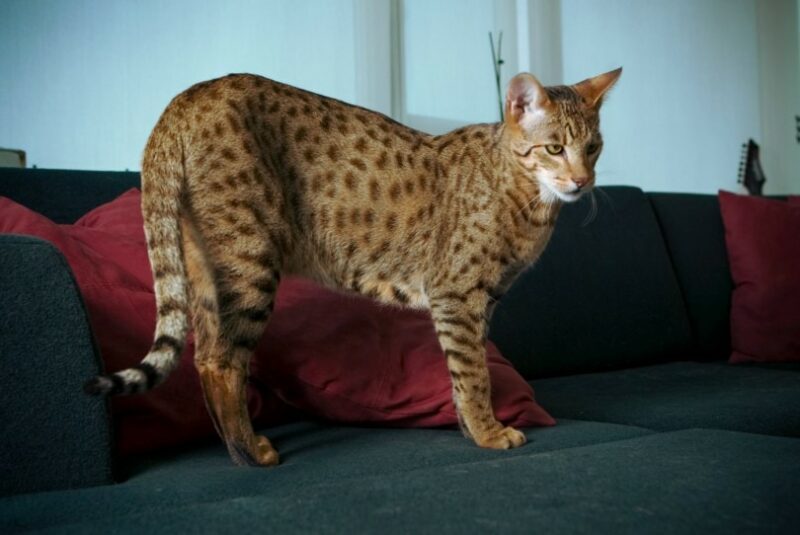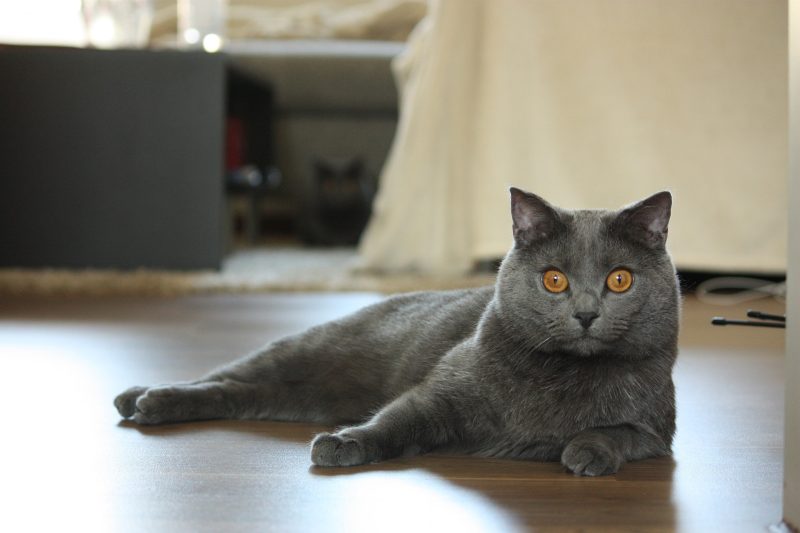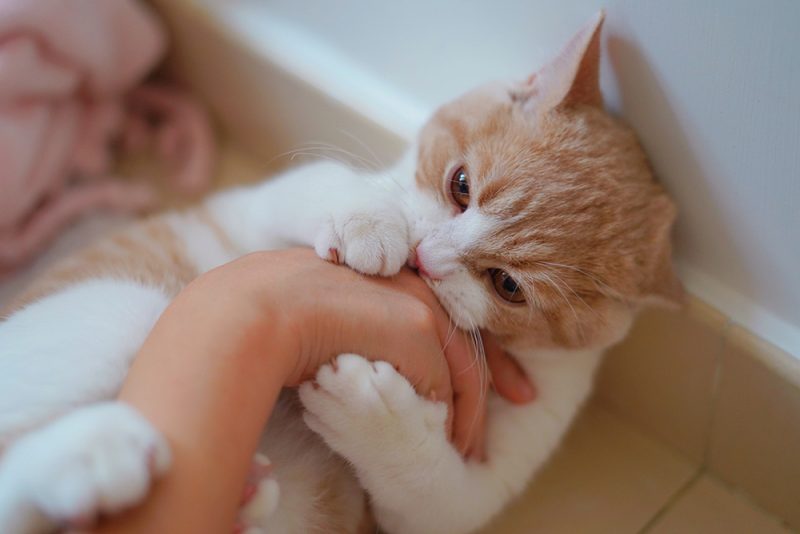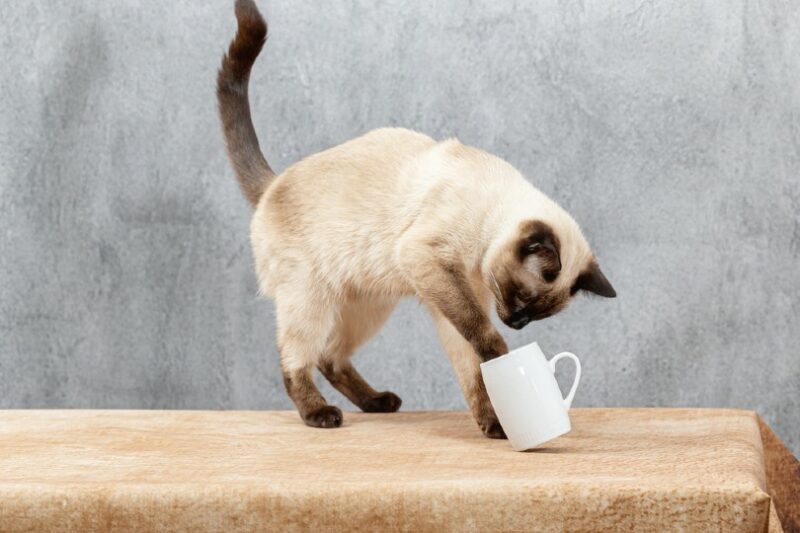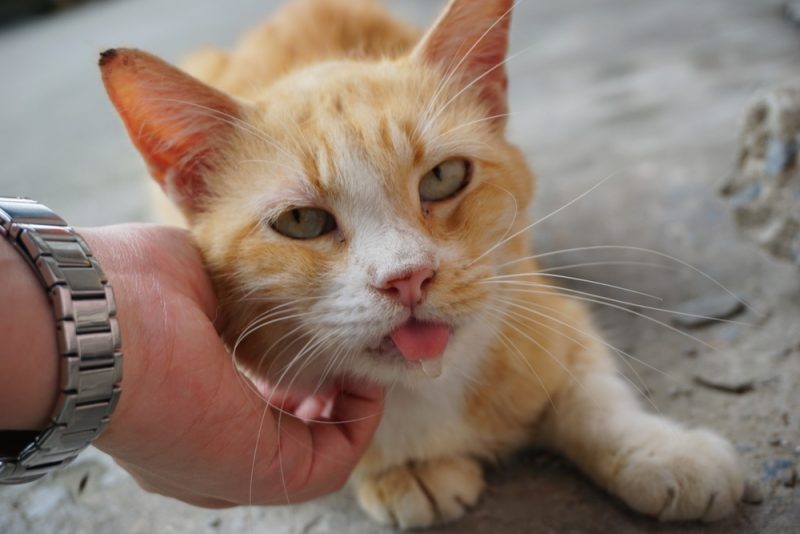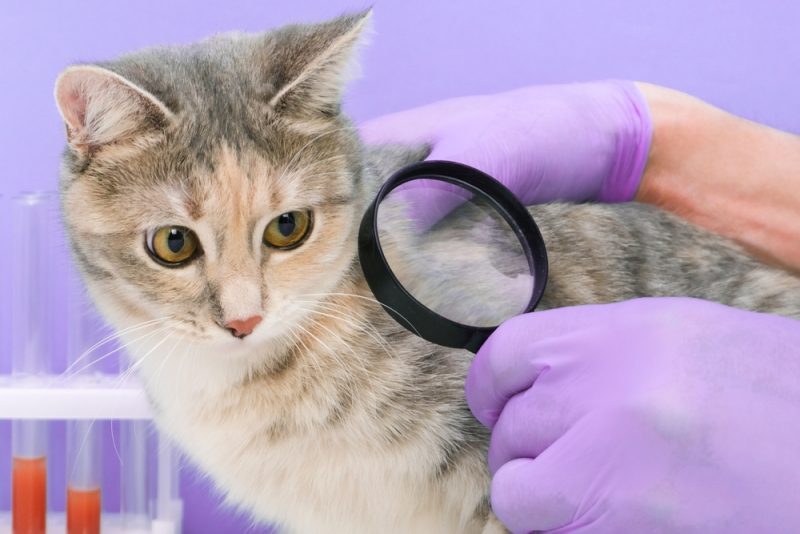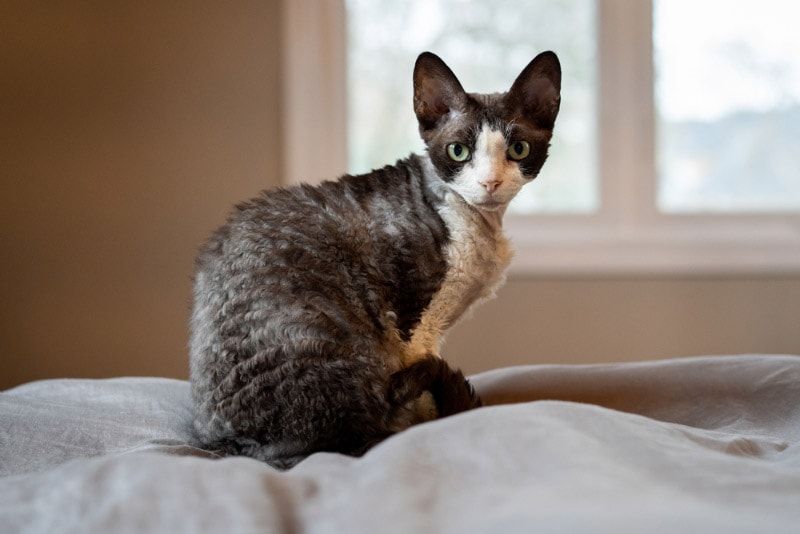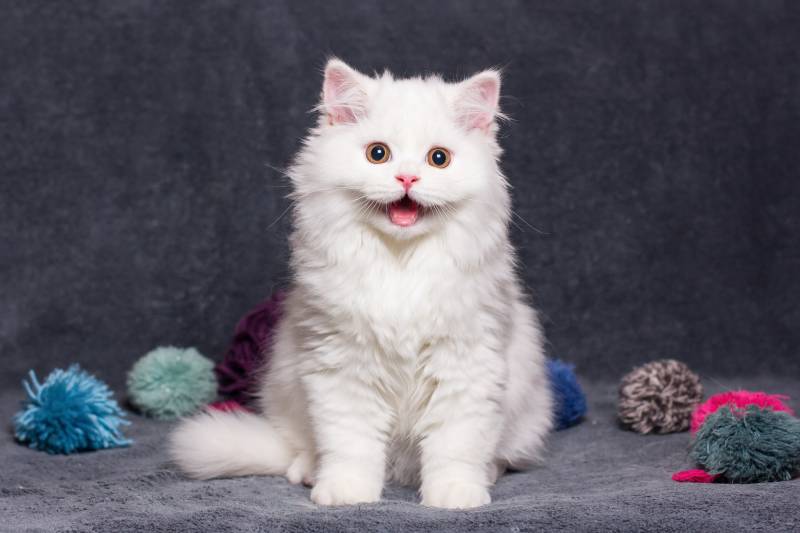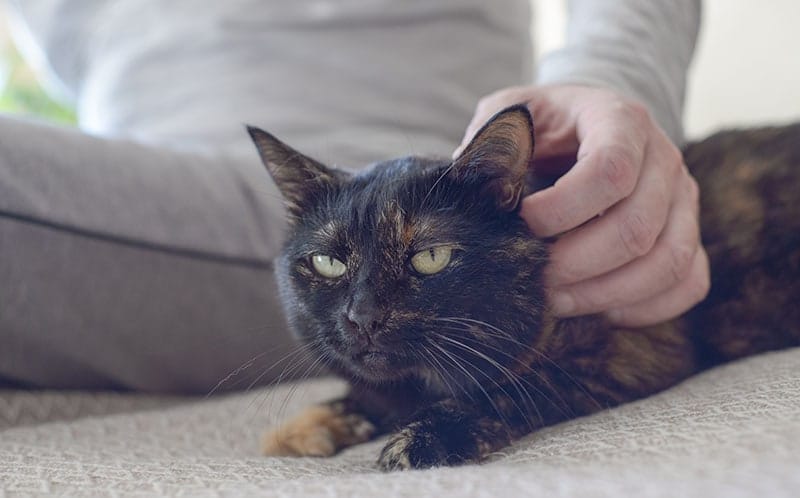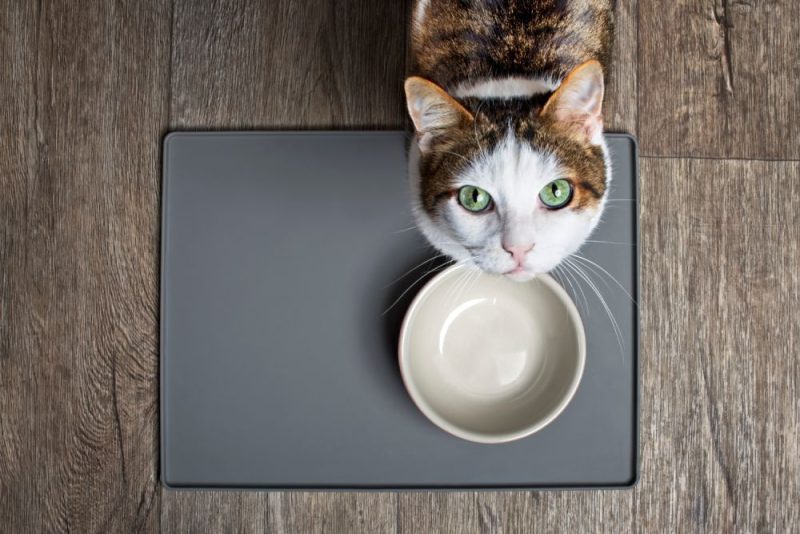In this article
Many pet cat owners love watching their cat feasting on their favorite food, grooming themselves, and then going on to do adorable “cat things”. Meal times also offer pet owners a very interesting way to bond with their pets, feeding your pet foods that are good for them is definitely a rewarding experience for pet owners.
But when your cat has finished a meal, you might wonder how long it takes for their bodies to completely process their food, absorb the nutrients, and eliminate the waste from the meal. Depending on what your cat eats, digestion takes between 15 to 24 hours on average. This average is far less for kittens, and it’s important to keep in mind that hunger can set in before this time elapses. Keep reading to learn more.

How Long Does It Take for a Cat to Digest Food?
It takes between 26 to 35 hours on average for food to move entirely through the digestive tract of a healthy cat, though variability is definitely possible and reported in literature 1. However, not all of this time is used to digest the food.
Digestion usually refers to the time it takes for food to be completely broken down and absorbed by the digestive system. This is the sum of the amount of time food takes to pass through the stomach and the small intestine. The large intestine, though a vital part of the digestive system, does not play as major a role in breaking down the food your cat eats for absorption (but is very important for water reabsorption).
The average time it takes for food to leave a cat’s stomach is anywhere from 1 – 3 hours. Water and liquids transit through the stomach much quicker than solids do. A cat will experience hunger if their stomach is empty for a period of 8 – 10 hours. However, the rate at which their stomach empties can vary tremendously based on their most recent meal size and the physical nature of the food they were fed (wet or dry diet).
Overall, the longest digestion phase is in the intestines. Furthermore, the rate of digestion is not significantly different in young cats when compared to old cats.
The Digestive System of a Cat
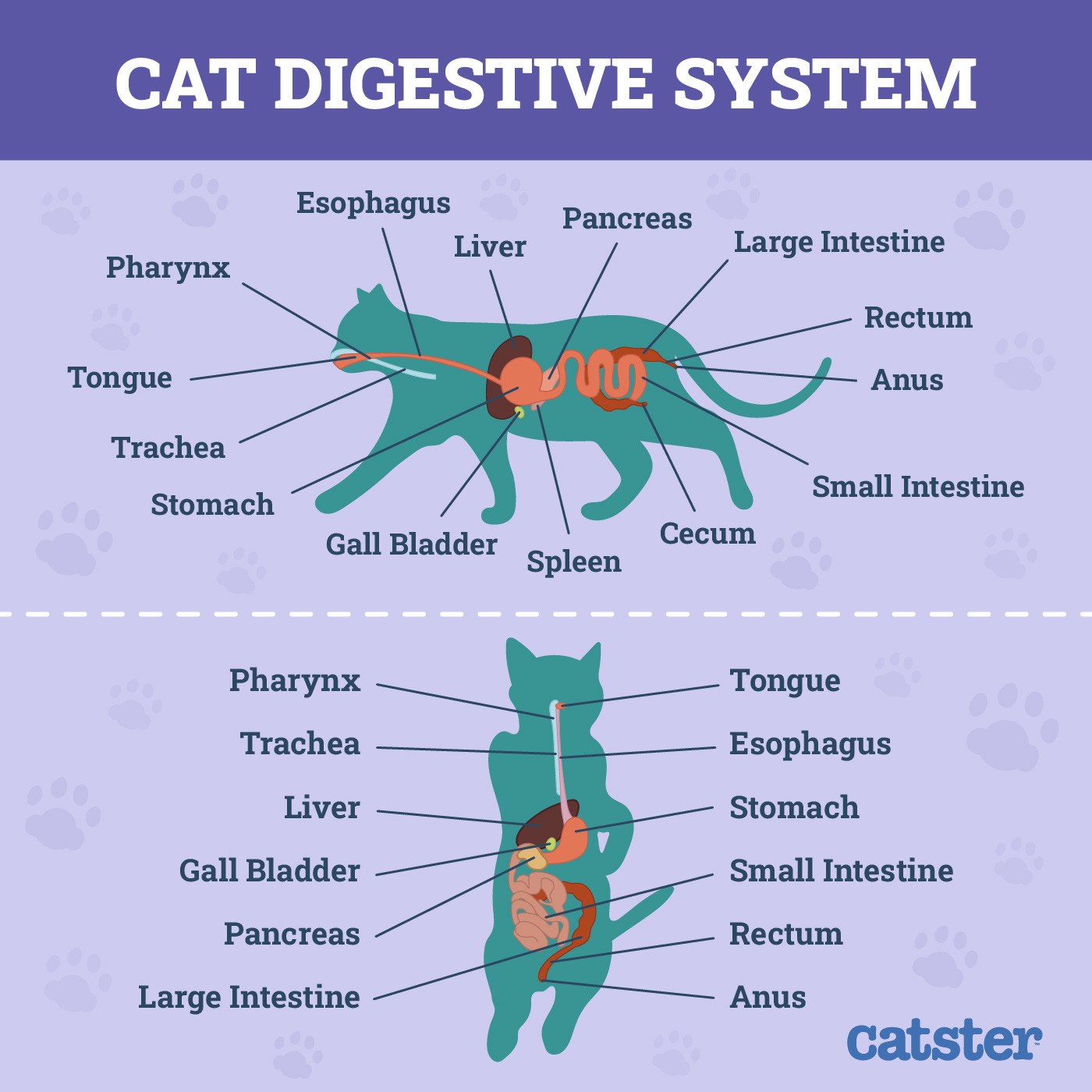
A cat’s digestive system does six things:
- Ingesting food
- Mechanical processing of food (limited in cats)
- Digestion
- Secretion of various enzymes
- Absorbing nutrients
- Eliminating feces
- Mouth (includes teeth and tongue)
- Esophagus
- Stomach
- Liver
- Gallbladder
- Pancreas
- Intestines
The liver, gallbladder, and pancreas are considered accessory organs to the digestive system; they aren’t part of the tract itself but play a role in digestion.
The Digestive Process
Digestion starts in your cat’s mouth. Cats don’t chew like humans because their jaws only move up and down. Ours can also move from side to side. We can chew our food thoroughly, while cats swallow pieces of their food in larger chunks. The cat’s tongue will mix the food with saliva as they chew. Though many species (including humans) have salivary amylase, an enzyme which begins the digestion process, the role of amylase in cats is considered very low to borderline absent.
Once swallowed, the esophagus muscles move the food into the stomach for further digestion. Cats have simple stomachs, meaning they consist of only one compartment. After food settles into the stomach, acids break it down further. When the food has turned into a liquid in the stomach, it passes into the small intestine.
The gallbladder releases bile, which is produced in the liver and stored in the gallbladder. It’s responsible for breaking up large fat molecules for easier digestion. The pancreas also releases enzymes that neutralize acids and help break down food into simpler nutrients.
The pancreas is also involved with the endocrine system and produces two key hormones: insulin and glucagon. These hormones are necessary to regulate glucose balance in your cat’s body. They aren’t directly involved in the digestive process, though.
The longest part of the cat’s digestive system is the small intestine, which is where most nutrients get absorbed. The process moves from the small intestine to the colon or large intestine. The primary role of the large intestine is to reabsorb water, and by doing so, feces are formed. Finally, feces continue to collect until they’re ready to be passed.

Keeping Your Cat’s Digestive System Healthy
Cats need high-protein diets because they are obligate carnivores, and they require meat from animal protein in their diet. Some animals can get essential fatty acids and nutrients from plants. However, cats lack the enzymes to process plants correctly. Instead, they get their necessary vitamins and minerals from protein.
For example, many plants contain beta-carotene, which is converted to vitamin A by many animal species (and humans). However, cats cannot utilize beta-carotene to make Vitamin A, therefore, it is wrong to assume that cats can derive vitamin A from plants that are high in the vitamin.
In the wild, a cat’s diet is varied, but it is estimated that it is mainly made up of 55% protein and 45% fat; they get this from their prey. Only 1%–2% of their diet comprises carbohydrates. Cats cannot produce certain amino acids in their bodies and must get them from their prey. They are designed to digest large amounts of protein, so a high animal-derived-protein diet is best for them and will keep their digestive system working properly. Anything outside of this diet is considered inappropriate for cats.
If your cat seems to be having any digestive struggles, speak to your vet about a diet change or supplements they may need.
If you need to speak with a vet but can't get to one, head over to PangoVet. It's an online service where you can talk to a vet online and get the advice you need for your pet — all at an affordable price!


Common Digestive Issues in Cats
Now that you know how long it takes cats to poop after they eat and how digestion works, you will know when your cat has a problem.
1. Constipation
Cats should not go longer than 24 – 36 hours without pooping if they eat regularly. If your cat doesn’t poop after 48 hours, they could be constipated and should see a vet immediately.
Constipation can happen for many reasons, including:
- Pain in the body
- Stress
- Strict dry diet without sufficient moisture
- Nervous system issues
- Kidney issues
- Excessive hairballs
- Allergies
- Chronic diseases
- Colon issues
It’s best to get this problem checked out right away. While many constipation issues are mild and can be easily treated, the issue can quickly become an emergency. Whenever your cat isn’t pooping normally, contact your vet.
2. Intestinal Blockage
Cat digestion can be interrupted by an intestinal blockage. This occurs when your cat eats something that can’t be digested, like small objects, ribbons, or plastic.
This is an emergency, and the signs of a blockage include the following:
- Vomiting
- Dehydration
- Weight loss
- Diarrhea
- Refusing to eat
If your cat didn’t eat a foreign object but still has an intestinal blockage, other causes can be tumors, hernias, or intestinal parasites. Surgery is likely necessary to treat a blockage, so seeking treatment right away is important.
3. Inflammatory Bowel Disease
Inflammatory Bowel Disease (IBD) can be challenging to diagnose because the signs mimic those of other conditions. IBD can only be confirmed with a biopsy, however, a presumptive diagnosis can be made if your cat responds well to treatment for the signs of the ailment. The signs include vomiting, diarrhea, weight loss, and lack of appetite.
- Immune dysfunction
- Food allergies
- Bacterial overgrowth
- Stress
- Genetics
- Parasites
Treatment includes medication and a possible diet change. Your veterinarian will work with you to determine the best course of treatment.

4. Food Allergies
In a strict sense, most incidences of cat food allergies are intolerances. Sometimes, food intolerances are noticed because cats suddenly develop skin lesions with near-constant itchiness. Other times, a true allergic reaction can occur – this involves the cat’s immune system to a much more drastic extent and can be accompanied by vomiting, diarrhea, and in very rare cases, respiratory issues.
Food allergies and intolerances can be diagnosed in many different ways, including blood tests, skin tests, and trial diets your veterinarian may prescribe your pet. It’s best to follow your vet’s lead on the matter to pick an option that is most appropriate for your pet.

Final Thoughts
It will take your cat between 26 to 35 hours to completely digest its food. Your cat’s stomach is empty several hours after eating a meal, and the rest of the digestion occurs in the intestines until your cat is ready to defecate. Some illnesses can cause digestive problems in your cat, so be sure to watch for any changes in their bathroom habits. If you suspect that something is wrong with your cat’s eating habits or digestion, it’s best to consult your veterinarian for more information.
- You may also be interested in: Surprising Cat Digestive System Facts (Vet Verified)
Featured Image Credit: IMG Stock Studio, Shutterstock
